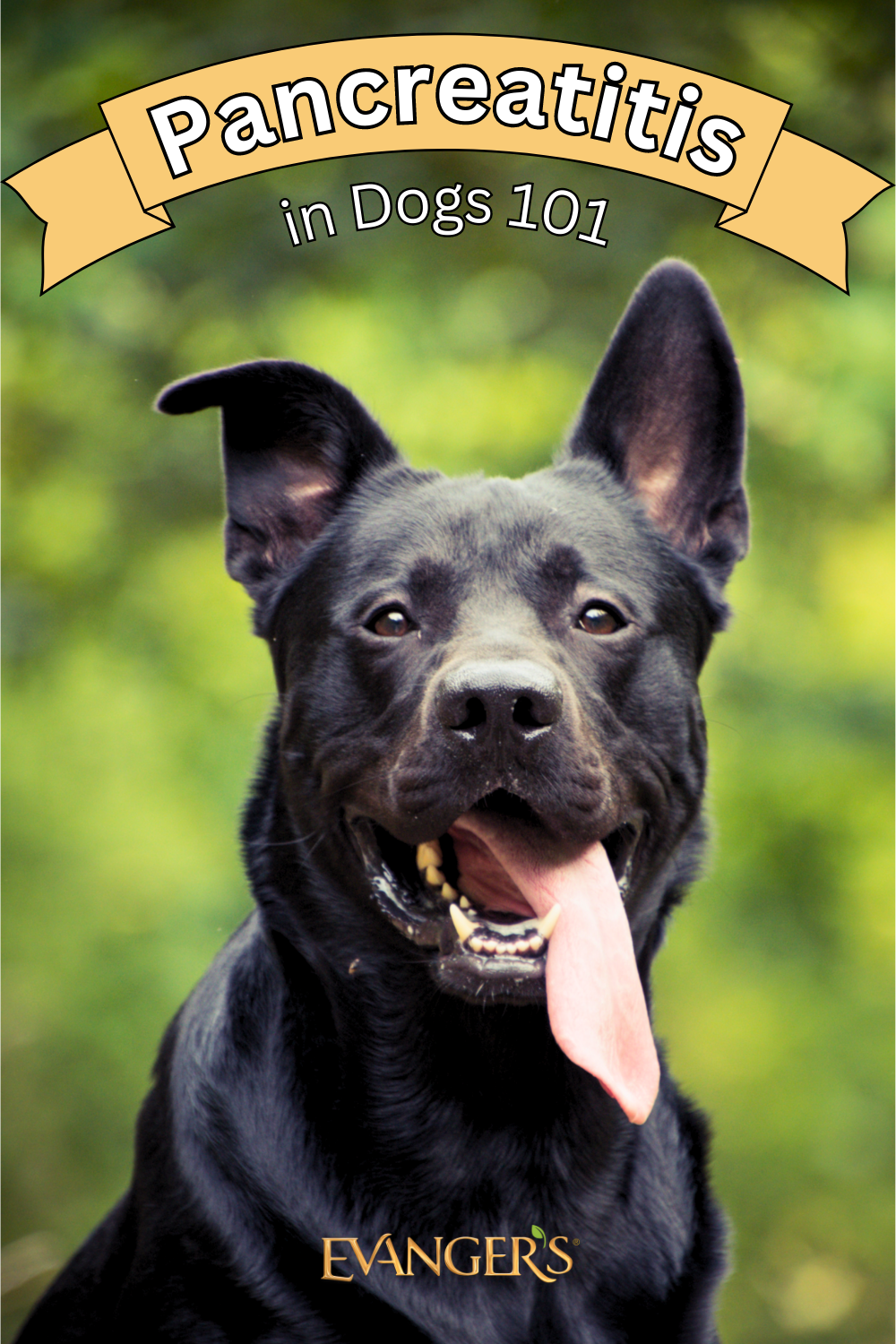Pancreatitis in Dogs 101

by Ian Germann
What is Pancreatitis?
A glandular organ located near the stomach and small intestine, the pancreas is responsible for releasing key enzymes that aid in digestion. Pancreatitis is a common medical condition that affects dogs of all ages and breeds, wherein the pancreas becomes inflamed and starts to produce digestive enzymes that attack its own tissues, damaging not only the pancreas, but surrounding tissues and organs as well.
In this blog post, we’ll explore the causes, symptoms and treatment options for pancreatitis in dogs, and how Evanger’s Dog Food can help.
The Causes
The exact causes of pancreatitis in dogs are not fully understood, but it is believed to be linked to a variety of factors. Some of the most common causes of pancreatitis in dogs include:
- Obesity: Dogs that are overweight or obese are at a higher risk of developing pancreatitis.
- High-fat diets: Feeding your dog a diet that is high in fat can increase their risk of developing pancreatitis.
- Genetic predisposition: Certain breeds, such as Miniature Schnauzers, are more prone to developing pancreatitis.
- Certain medications: Some medications, such as corticosteroids and certain antibiotics, can increase the risk of pancreatitis in dogs.
- Trauma: Trauma to the abdomen, such as being hit by a car, can also increase the risk of pancreatitis in dogs.
The Symptoms
The symptoms of pancreatitis in dogs can vary depending on the severity of the condition. Some common symptoms of pancreatitis in dogs include:
- Repeated vomiting
- Diarrhea
- Hunched back
- Loss of appetite
- Abdominal pain
- Dehydration
- Lethargy
- Fever
In severe cases, dogs may experience organ failure, shock and even death as a result of pancreatitis. It is important to seek veterinary care immediately if you notice any of these symptoms in your dog.
Treatment Options
The treatment of pancreatitis in dogs depends on the severity of the condition. Mild cases of pancreatitis may be treated on an outpatient basis with lifestyle changes and medication. More severe cases of pancreatitis may require hospitalization for supportive care, such as intravenous fluids and pain management.
In addition to medical treatment, it is important to make dietary changes to help manage pancreatitis in dogs. Your veterinarian may recommend a low-fat or prescription diet that is specifically formulated for dogs with pancreatitis.
If your dog has pancreatitis, avoid feeding your pup food that’s high in fat or starch. Evanger’s Complements Vegetarian Dinner and Hand Packed Hunk of Beef are limited ingredient recipes perfect for dogs suffering with pancreatitis. These recipes are easy to digest with low-fat amounts and lots of moisture to keep your dog happy and healthy!
Recommended Posts

100 Amazing Female Dog Names
August 18, 2023

How to Make a Shelter Dog Birthday Cake!
August 10, 2023

How to Find the Perfect Dog Food
June 28, 2023


